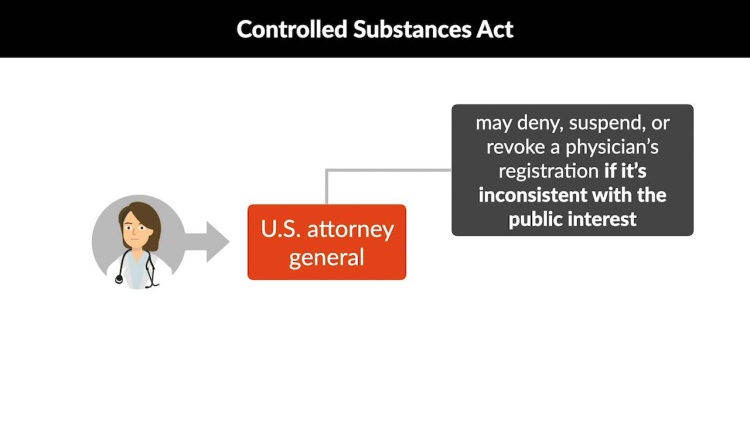Gonzales v. Oregon
United States Supreme Court
546 U.S. 243 (2006)

- Written by Josh Lee, JD
Facts
The State of Oregon (the state) (plaintiff) legalized assisted suicide through a ballot measure in 1994. Under this law, physicians who dispensed or provided a lethal dose of drugs to terminally ill patients under specific safeguards were immune from civil or criminal liability. These drugs were federally regulated under the Controlled Substances Act (CSA), 21 U.S.C. § 801 et seq. In 2001, United States Attorney General John Ashcroft, the predecessor to Alberto Gonzales (defendant), issued an interpretive rule providing that assisted suicide was not a legitimate medical practice and that dispensing or prescribing drugs for that purpose was prohibited by the CSA. The state obtained an injunction in district court to prevent enforcement of the interpretive rule, and the court of appeals held that the interpretive rule was invalid. Gonzales petitioned for certiorari.
Rule of Law
Issue
Holding and Reasoning (Kennedy, J.)
Dissent (Scalia, J.)
What to do next…
Here's why 907,000 law students have relied on our case briefs:
- Written by law professors and practitioners, not other law students. 47,100 briefs, keyed to 996 casebooks. Top-notch customer support.
- The right amount of information, includes the facts, issues, rule of law, holding and reasoning, and any concurrences and dissents.
- Access in your classes, works on your mobile and tablet. Massive library of related video lessons and high quality multiple-choice questions.
- Easy to use, uniform format for every case brief. Written in plain English, not in legalese. Our briefs summarize and simplify; they don’t just repeat the court’s language.





